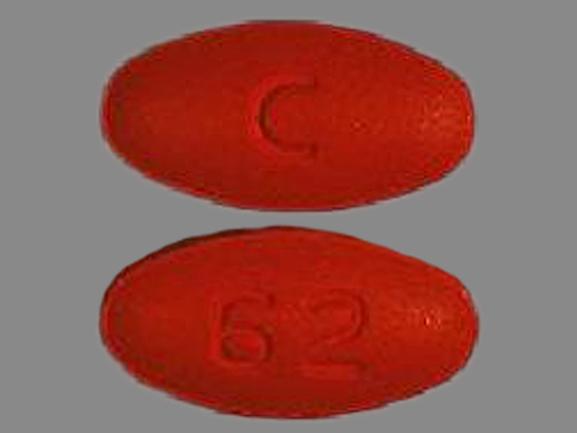Cefpodoxime
Generic name: cefpodoxime [ SEF-poe-DOX-eem ]
Brand name: Vantin
Dosage forms: oral powder for reconstitution (100 mg/5 mL; 50 mg/5 mL), oral tablet (100 mg; 200 mg)
Drug class: Third generation cephalosporins
What is cefpodoxime?
Cefpodoxime is a cephalosporin (SEF a low spor in) antibiotic that is used to treat infections caused by bacteria. This includes infections of the sinus, throat, ear, skin, bladder, or lungs.
Cefpodoxime is also used to treat gonorrhea.
Cefpodoxime may also be used for purposes not listed in this medication guide.
Cefpodoxime side effects
Get emergency medical help if you have signs of an allergic reaction (hives, difficult breathing, swelling in your face or throat) or a severe skin reaction (fever, sore throat, burning in your eyes, skin pain, red or purple skin rash that spreads and causes blistering and peeling).
Cefpodoxime may cause serious side effects. Call your doctor at once if you have:
-
severe stomach pain, diarrhea that is watery or bloody (even if it occurs months after your last dose);
-
fever, chills, sore throat, mouth sores, swollen glands, joint pain, or not feeling well;
-
a seizure; or
-
liver problems--upper stomach pain, loss of appetite, dark urine, clay-colored stools, jaundice (yellowing of the skin or eyes).
Common side effects of cefpodoxime may include:
-
diarrhea;
-
nausea, stomach pain;
-
vaginal itching or discharge; or
-
diaper rash in an infant using cefpodoxime.
This is not a complete list of side effects and others may occur. Call your doctor for medical advice about side effects. You may report side effects to FDA at 1-800-FDA-1088.
Related/similar drugs
Amoxicillin
Amoxicillin is a penicillin antibiotic that fights bacteria. It is used to treat many types of ...
Keflex
Keflex (cephalexin) is used to treat infections caused by bacteria, including respiratory ...
Botox
Botox is used to treat chronic migraines, excessive sweating, bladder conditions, eye muscle ...
Zithromax
Zithromax (azithromycin) treats infections caused by bacteria, such as respiratory infections, skin ...
Guaifenesin
Guaifenesin is an expectorant. It helps loosen congestion in your chest and throat. Includes ...
Macrobid
Macrobid (nitrofurantoin) is an antibiotic used to treat urinary tract infections. Includes side ...
Levofloxacin
Levofloxacin is a fluoroquinolone antibiotic used to treat serious bacterial infections and prevent ...
Augmentin
Augmentin is a prescription antibiotic combining amoxicillin and clavulanate to treat bacterial ...
Clindamycin
Clindamycin (Cleocin) is used to treat serious infections caused by bacteria. Includes clindamycin ...
Warnings
You should not use cefpodoxime if you have ever had a severe allergic reaction to any type of cephalosporin antibiotic (Omnicef, Keflex, and others).
Before taking this medicine
You should not take cefpodoxime if you are allergic to cefpodoxime or any other cephalosporin antibiotic (cefdinir, cefalexin, Keflex, Omnicef, and others).
Tell your doctor if you have ever had:
-
kidney disease;
-
urination problems;
-
a stomach or intestinal disorder such as colitis; or
-
an allergy to any type of penicillin.
Tell your doctor if you are pregnant.
You should not breastfeed while using cefpodoxime.
Cefpodoxime is not approved for use by anyone younger than 2 months old.
How should I take cefpodoxime?
Follow all directions on your prescription label and read all medication guides or instruction sheets. Use the medicine exactly as directed.
Take a cefpodoxime tablet with food.
You may take cefpodoxime oral suspension (liquid) with or without food.
Shake the liquid before you measure a dose. Use the dosing syringe provided, or use a medicine dose-measuring device (not a kitchen spoon).
Use this medicine for the full prescribed length of time, even if your symptoms quickly improve. Skipping doses can increase your risk of infection resistant to medication. Cefpodoxime will not treat a viral infection (flu or common cold).
This medicine can affect the results of certain medical tests. Tell any doctor who treats you that you are using cefpodoxime.
Store the tablets at room temperature away from moisture and heat.
Store the liquid in a tightly-closed bottle in the refrigerator. Do not freeze. Throw away any unused liquid after 14 days.
What happens if I miss a dose?
Take the medicine as soon as you can, but skip the missed dose if it is almost time for your next dose. Do not take two doses at one time.
What happens if I overdose?
Seek emergency medical attention or call the Poison Help line at 1-800-222-1222.
Overdose symptoms may include nausea, vomiting, stomach pain, and diarrhea.
What should I avoid while taking cefpodoxime?
Antibiotic medicines can cause diarrhea, which may be a sign of a new infection. If you have diarrhea that is watery or bloody, call your doctor before using anti-diarrhea medicine.
What other drugs will affect cefpodoxime?
Cefpodoxime can harm your kidneys, especially if you also use certain medicines for infections, cancer, osteoporosis, organ transplant rejection, bowel disorders, high blood pressure, or pain or arthritis (including Advil, Motrin, and Aleve).
Tell your doctor about all your other medicines, especially:
-
an antacid; or
-
a stomach acid reducer (Pepcid, Tagamet, and others).
This list is not complete. Other drugs may affect cefpodoxime, including prescription and over-the-counter medicines, vitamins, and herbal products. Not all possible drug interactions are listed here.
More about cefpodoxime
- Check interactions
- Compare alternatives
- Pricing & coupons
- Reviews (18)
- Drug images
- Side effects
- Dosage information
- During pregnancy
- Drug class: third generation cephalosporins
- Breastfeeding
- En español
Patient resources
Other brands
Professional resources
Other brands
Related treatment guides
Further information
Remember, keep this and all other medicines out of the reach of children, never share your medicines with others, and use this medication only for the indication prescribed.
Always consult your healthcare provider to ensure the information displayed on this page applies to your personal circumstances.
Copyright 1996-2025 Cerner Multum, Inc. Version: 7.01.

